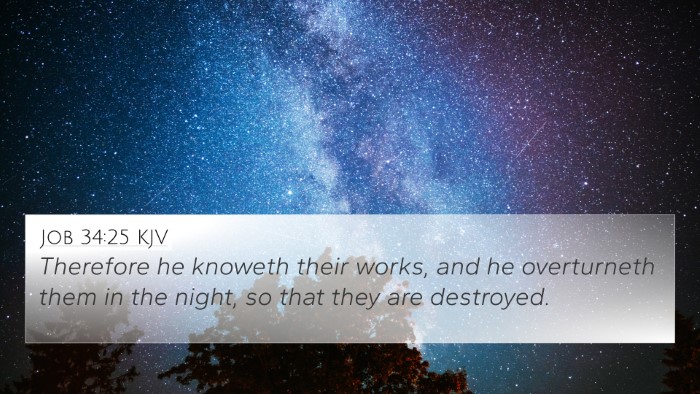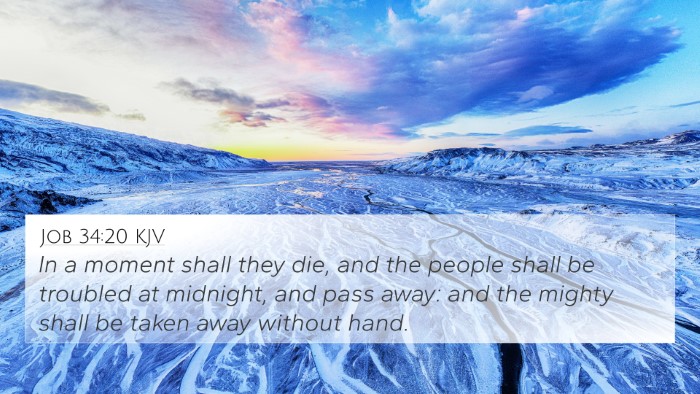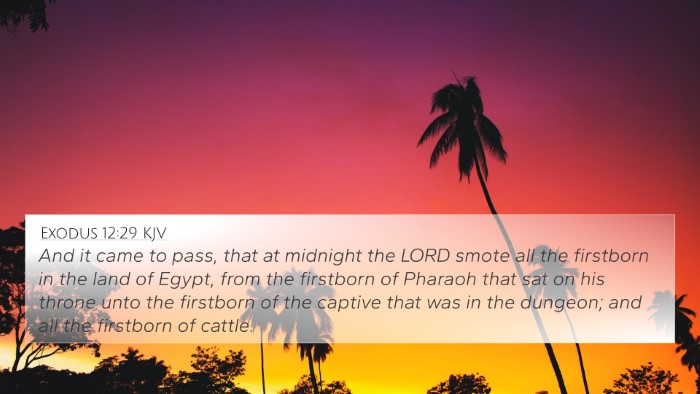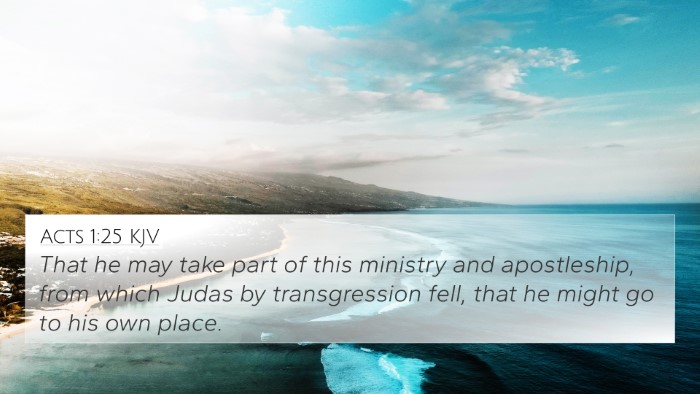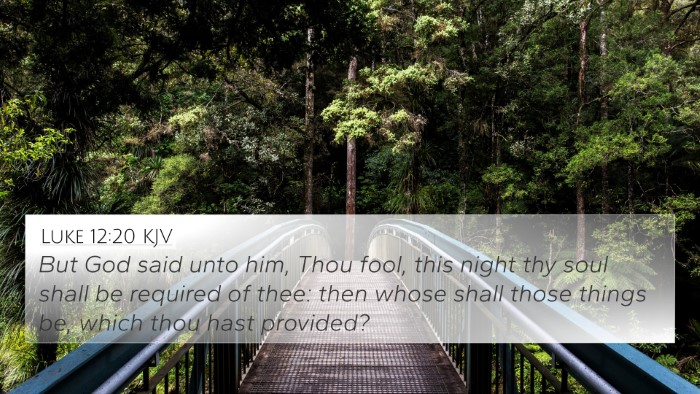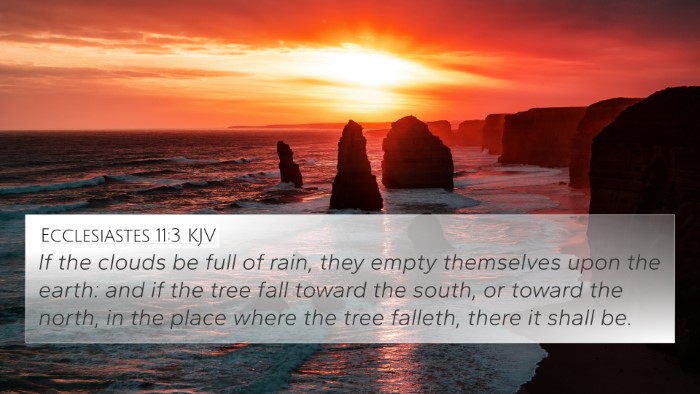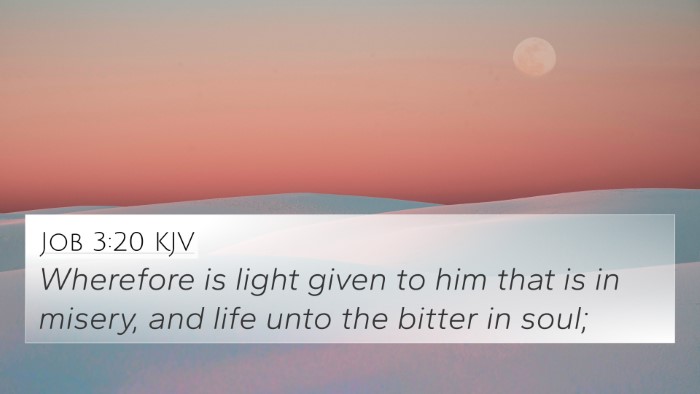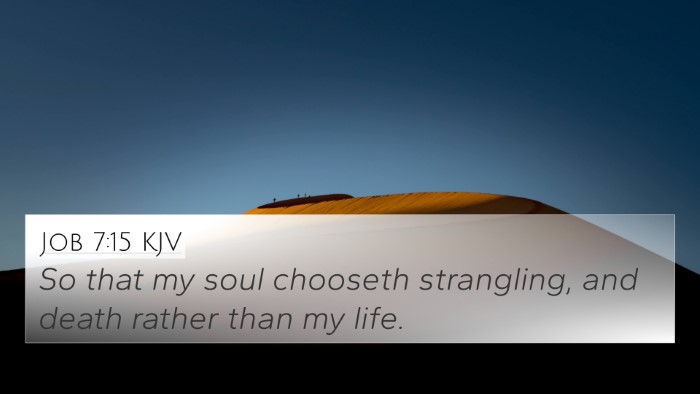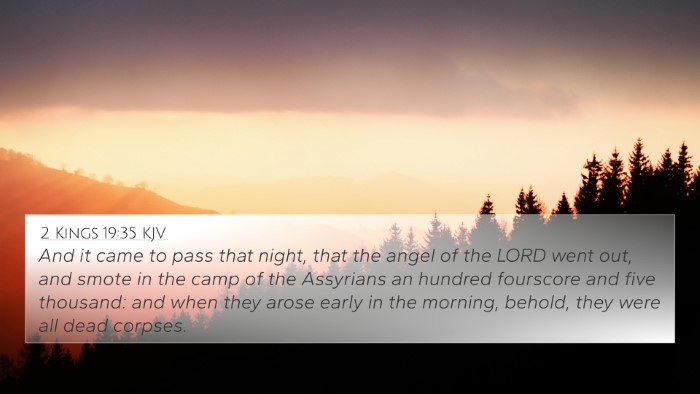Bible Verse Meaning: Job 36:20
Verse Reference: Job 36:20 - "Desire not the night, when people are cut off in their place."
This verse highlights a profound theme in the context of suffering, hope, and God’s ultimate sovereign authority. Job’s discourse is marked by a reminder of the transient nature of human life and the perils that come with it.
Interpretation and Insight
Drawing from the commentaries of Matthew Henry, Albert Barnes, and Adam Clarke, we find a layered understanding of the implications in Job 36:20.
-
Matthew Henry's Commentary:
Henry emphasizes the moral warning against desiring the darkness of despair or death. He notes that many sufferings and calamities are experienced when people are enveloped by night, symbolizing both literal darkness and a metaphorical state of grief.
-
Albert Barnes' Notes:
Barnes observes the significance of the 'night' as a metaphor for destruction and judgment. His insights point towards the consequences of wishing for the cessation of suffering without recognizing God’s intricate workings through trials. Thus, he implores believers to seek understanding rather than desiring escape.
-
Adam Clarke’s Commentary:
Clarke discusses the broader narrative, framing this verse within the Jobic discourse about divine justice. He notes that in wishing for night, one might miss the lessons and the growth that come during difficult periods, highlighting the importance of patience and faith amid trials.
Thematic Connections
Job 36:20 resonates with various themes throughout the Scriptures which can be explored through cross-referencing:
- Psalm 22:2 - "O my God, I cry in the daytime, but Thou hearest not; and in the night season, and am not silent." This emphasizes the cry of despair echoed in Job’s lament.
- Ecclesiastes 3:1 - "To everything, there is a season, and a time to every purpose under heaven." A reminder that both joy and sorrow are part of divine timing.
- Isaiah 50:10 - "Who is among you that feareth the LORD, that obeyeth the voice of his servant, that walketh in darkness, and hath no light? Let him trust in the name of the LORD, and stay upon his God." This verse underscores the call to faith amidst darkness.
- Lamentations 3:22-23 - "It is of the LORD's mercies that we are not consumed, because his compassions fail not. They are new every morning: great is thy faithfulness." A testimony about hope and renewal, even in trials.
- 2 Corinthians 4:8-9 - "We are troubled on every side, yet not distressed; we are perplexed, but not in despair; persecuted, but not forsaken; cast down, but not destroyed." These verses parallel the struggles faced in Job's experience.
- 1 Peter 5:8 - "Be sober, be vigilant; because your adversary the devil, as a roaring lion, walketh about, seeking whom he may devour." This call to vigilance reminds of the ever-present dangers even in spiritual darkness.
- Revelation 21:4 - "And God shall wipe away all tears from their eyes; and there shall be no more death, neither sorrow, nor crying, neither shall there be any more pain: for the former things are passed away." An eschatological promise countering the despair found in Job’s lament.
Understanding Through Cross-References
By examining these thematic connections, one can see how Job 36:20 interacts with both the Old and New Testaments, uncovering deeper insights into God's nature and human suffering. Such cross-referencing enriches the understanding of scripture and illustrates the continuity of God’s message throughout the Bible.
Tools for Cross-Referencing Biblical Texts
When studying verses like Job 36:20, utilizing cross-reference tools such as a Bible concordance or a cross-reference Bible study aid can facilitate a more comprehensive understanding:
- Bible concordance software can help you locate related verses quickly.
- A cross-reference Bible study guide offers structured paths through themes and concepts connecting the scriptures.
- Utilizing thematic Bible commentary can help in identifying links between various passages.
Final Thoughts
Job 36:20 serves as a poignant reminder of the human condition within divine providence. It illustrates the necessity of faith, hope, and a deep understanding of God's plan amid life's complexities. By engaging with cross-references and related themes, readers are encouraged to look beyond their immediate suffering, discovering the rich tapestry of God’s narrative throughout the entirety of scripture.



